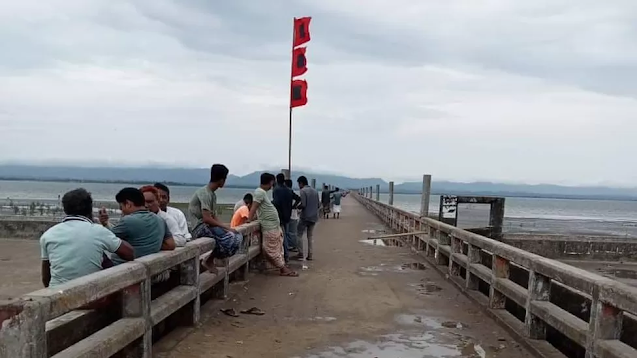People pack shelters as Cyclone Mocha threatens world's largest refugee camp
Scores of people are being transferred to safer areas in south-eastern Bangladesh, as Cyclone Mocha is predicted to make landfall on Sunday, with 106 mph winds and storm surges of up to 3.6 metres.
Red warning flags have been raised and some parts of the country
have already started receiving precipitation. As the devastating weather system
approaches the Bangladesh-Myanmar coast, nearby airports have paused
operations.
Meanwhile, fishermen have been advised to stop venturing
into the ocean and thousands of temporary shelters have been set up to house
vulnerable families. The cyclone could be the most powerful storm Bangladesh
has encountered in nearly 20 years.
There are concerns Mocha could hit the largest refugee camp
in the world, Cox's Bazar, where almost a million refugees live in makeshift
houses. "We are ready to face any hazards," the BBC cited Vibhushan
Kanti Das, additional deputy commissioner at Cox's Bazar, as saying.
Close to a million Rohingya refugees who have escaped
violence in neighbouring Myanmar are at extreme risk. They have been living in
fragile bamboo shelters with covers of tarpaulin. The UN says it is doing
what's in its capacity to protect these areas.
As refugees aren't allowed to leave their camps by the
Bangladeshi government, several of them have expressed fright and uncertainty
over what would happen if Mocha hits their shelters.
Throughout the day, scores of families have been arriving at
designated cyclone shelters. Classrooms at a school in Cox's Bazar have been
receiving people in hundreds. While some brought a few of their possessions in
plastic bags, others arrived with their chickens and cattle.
The cyclone could bring along enormous precipitation,
potentially triggering landslides - a serious danger for those living in hillside
camps, where landslides aren't counted among uncommon phenomena.
MD Shamsul Douza, from the Bangladeshi government office
which oversees the refugees and the camps, said they were working with NGOs to
ensure the shelters were sufficiently prepared to survive the storm, the BBC
reported.
But transferring refugees out of the camps wasn't so easy,
he added.




Comments
Post a Comment